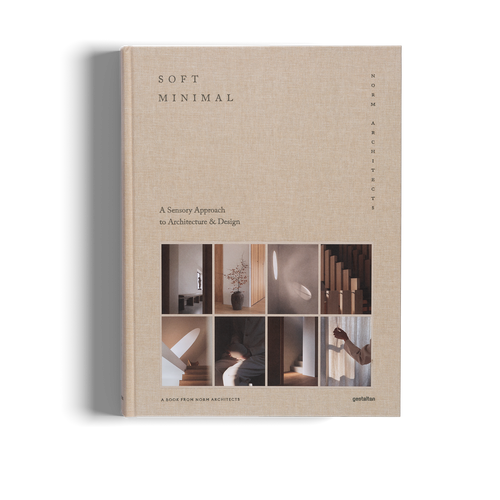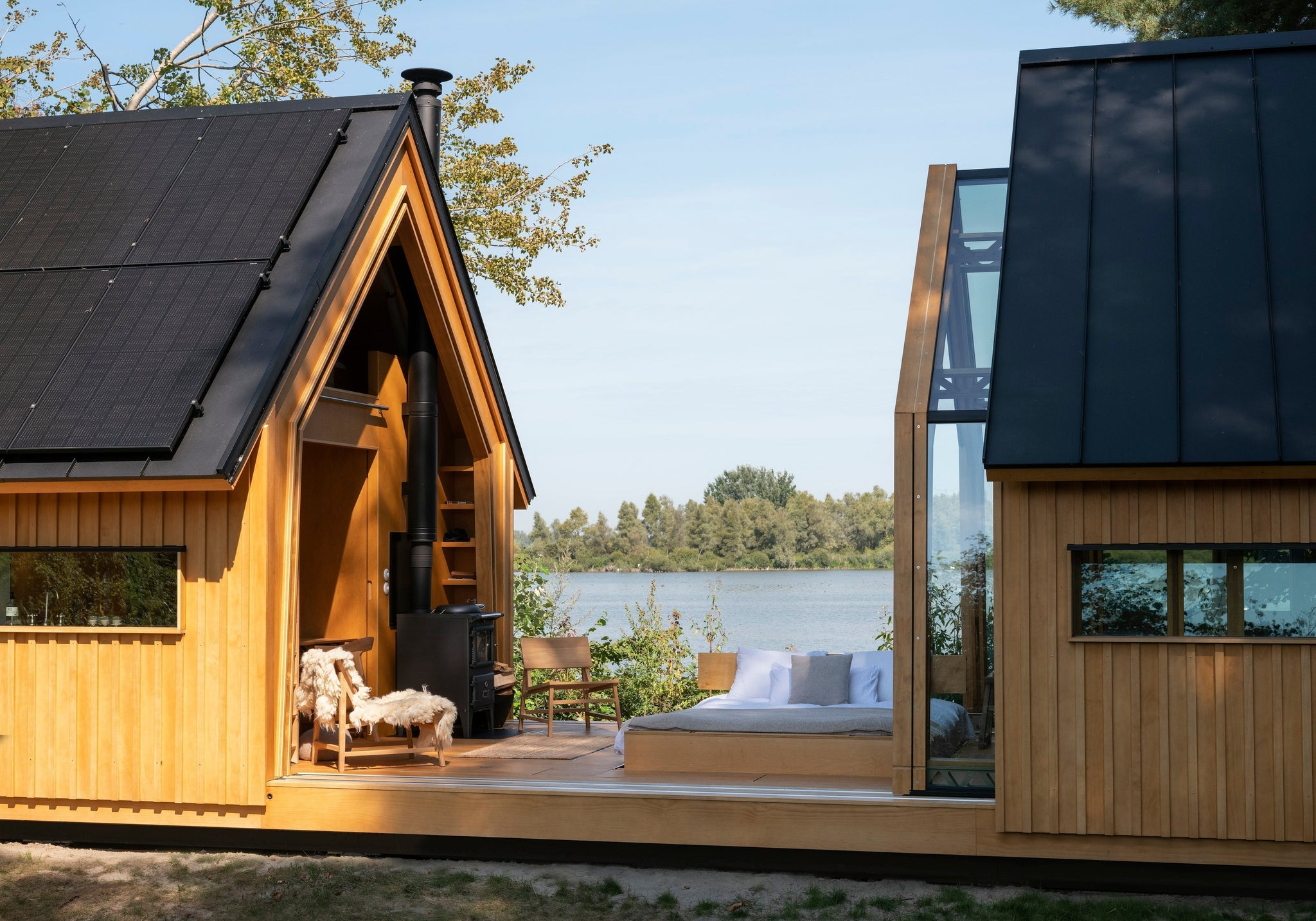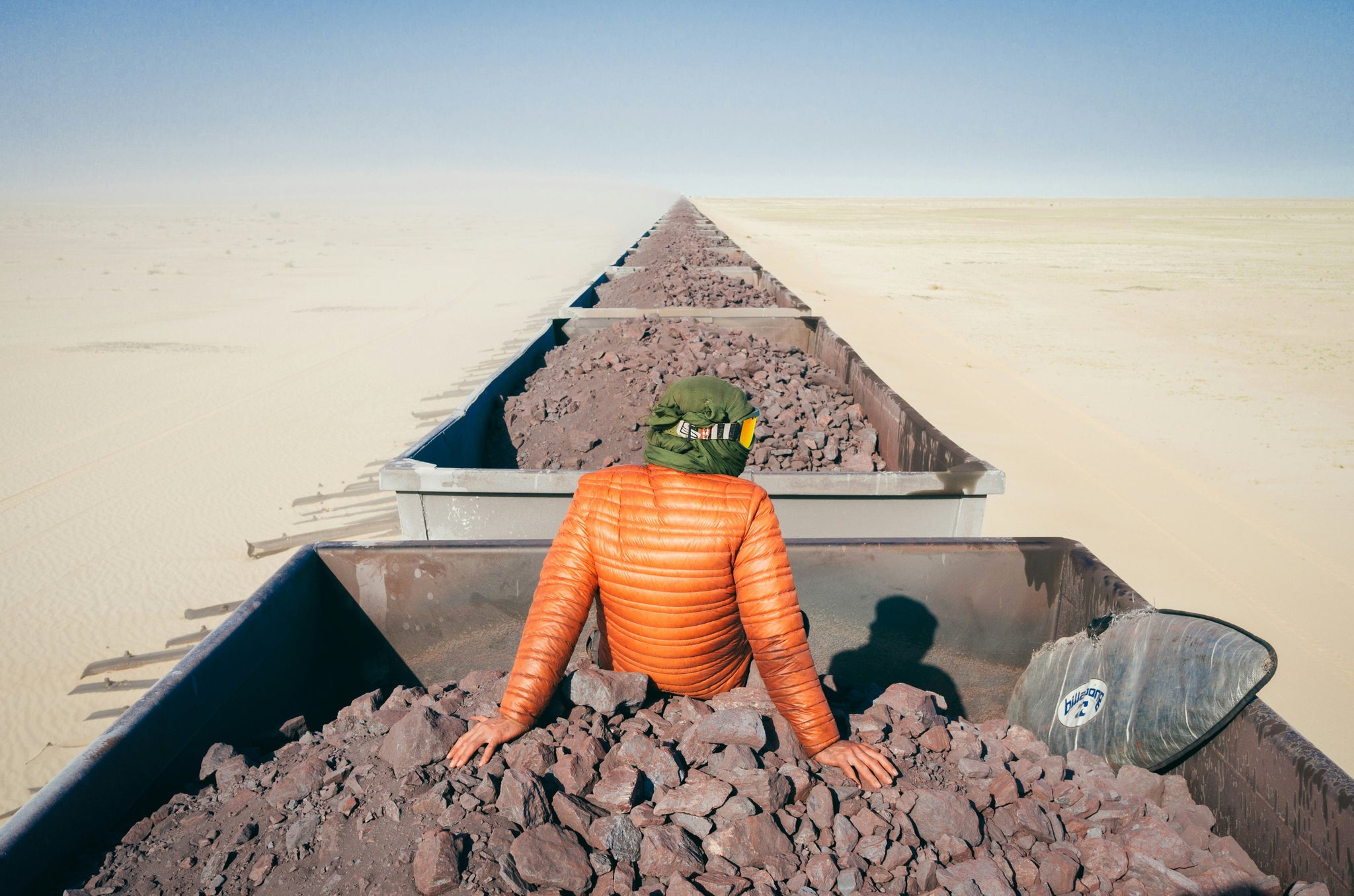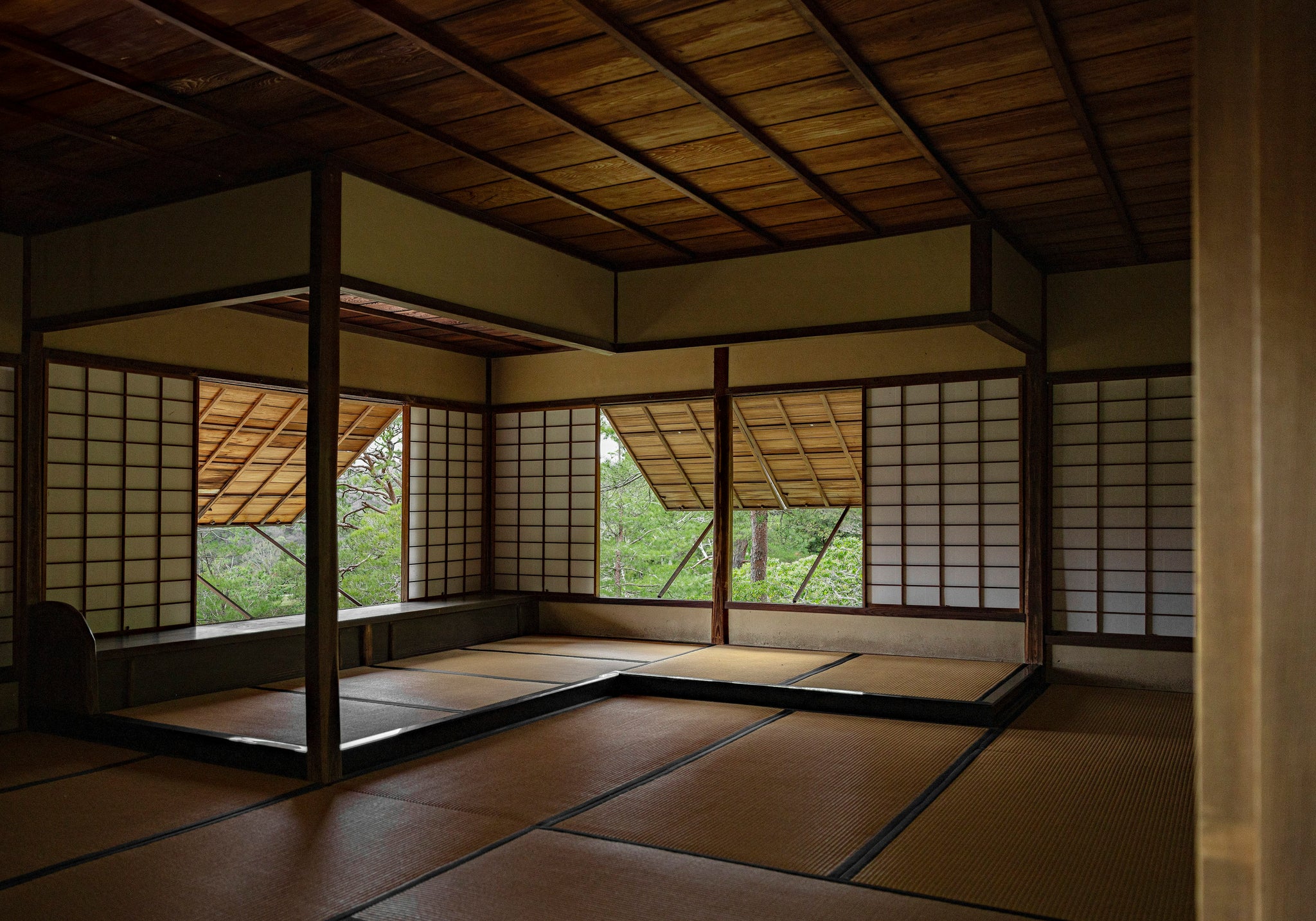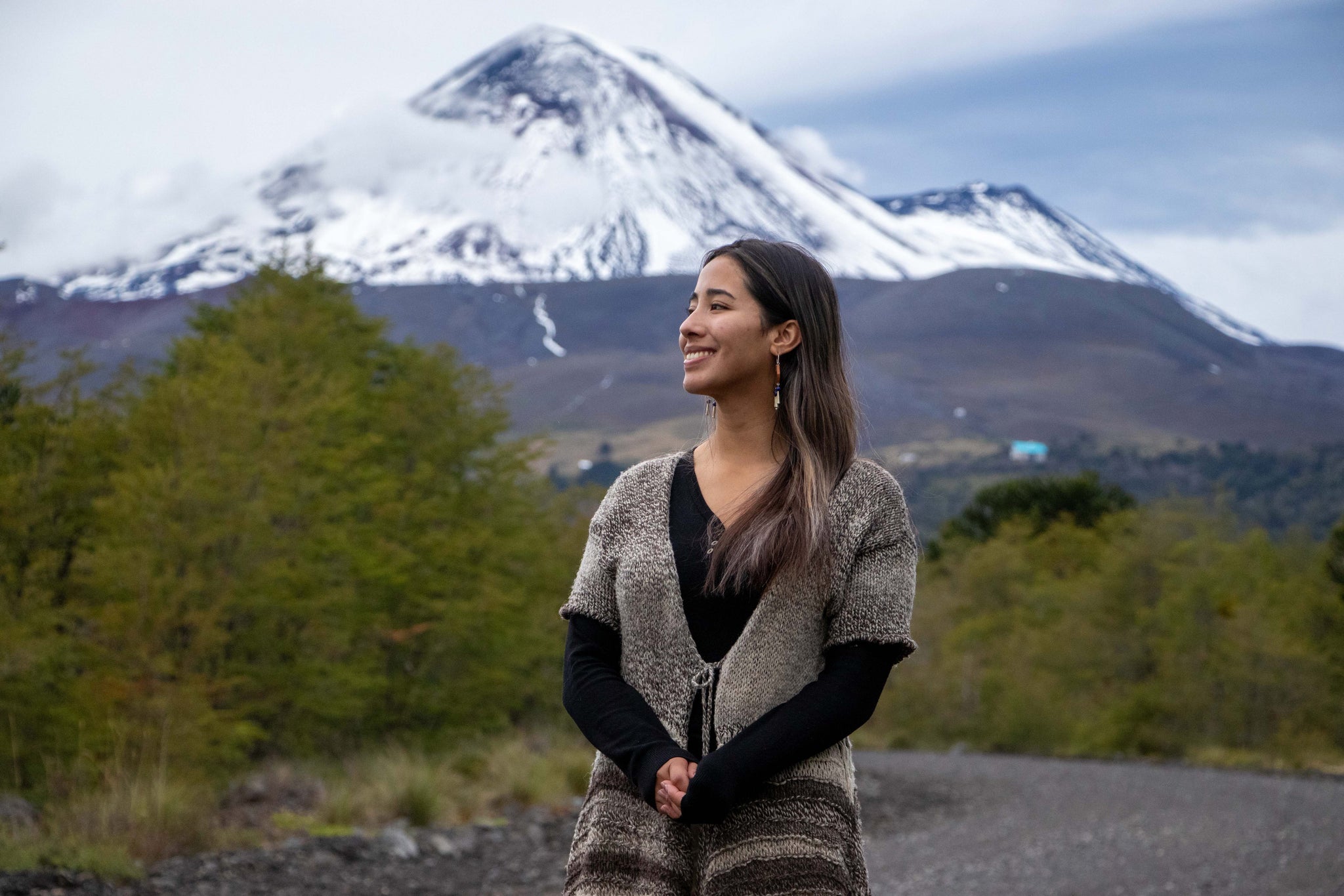
02/2020 architecture & interior
The birth of a garden in a metropolitan space can be regarded as a homogeneous act of humankind giving back to nature. It symbolizes a way of reconnecting with plants in an area predominately engulfed by concrete, organized grid systems, and technology. Gardening has the ability to be a small, personal act of biophilia to reverse the land claimed by our cities, while also removing ourselves mentally from the digital realm, even if only momentarily.
"As we become more attached to digital culture, we crave tactility more and more"
Through our latest release, The Gardens of Eden, journalist, author, and artist Abbye Churchill takes us on a journey into the innovative and ever-popular world of garden concepts and architecture. An expert in the language of flora, we put some questions to the co-author to learn more about modern gardening and the rise of these avid communities across the world.
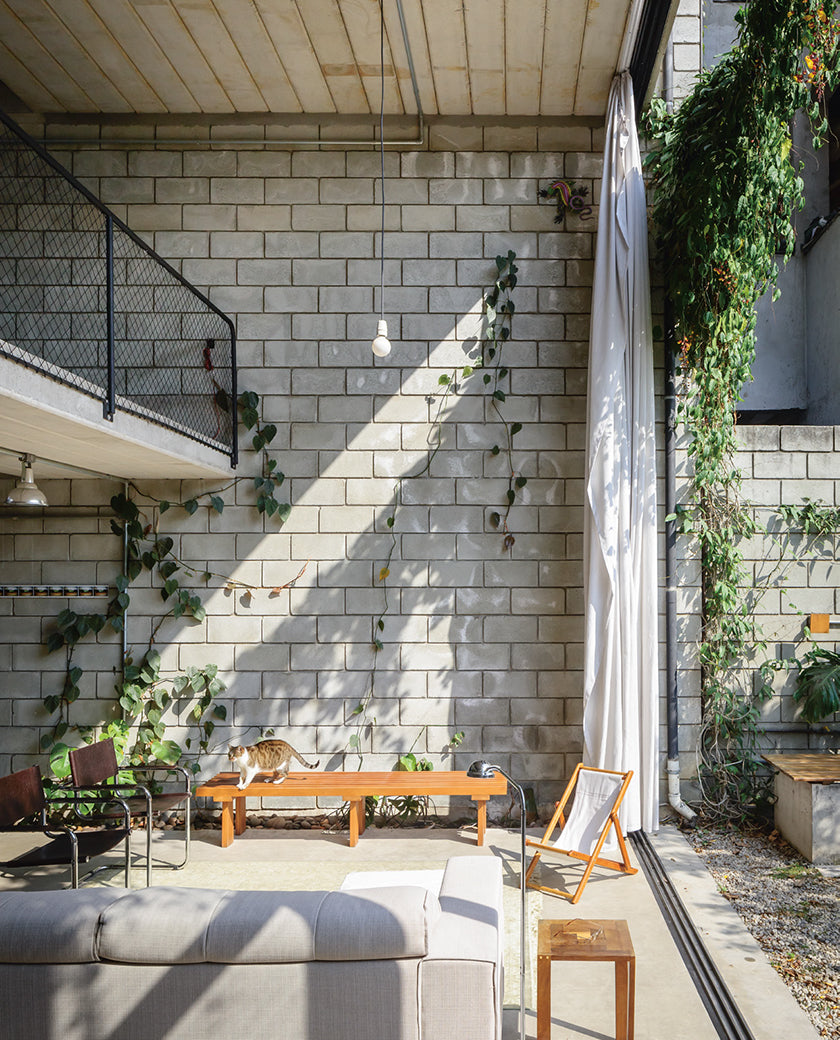
The Sāo Paulo garden of Gabriella Ornaghi and Bianca Vasone, a naturalistic landscape that has closely studied the climate and ecosystem of the city. The duo incorporated the outdoors into the living space, they employ height to create a surrounding effect with the plant life. (Photo: Pedro Kok, The Gardens of Eden)
The Gardens of Eden detail how garden design today is multi-faceted and we are living in an abundance of choice. Is this the heyday of gardening and what explains its modern rise?
I would not say that we are living in the heyday of gardening—we've moved far away from being individually reliant on and engaged with the land and our food sources as we are more dependent on industrialized agriculture. However, I think it is precisely for that reason that there has been a surge in interest in gardening over the past decade. As we become more attached to digital culture, we crave tactility more and more. We want to know where our food comes from. We want to make the spaces we live more beautiful and verdant. As we face the increasing influence of technology, we crave a connection to the earth in any way we can find it. I think gardening can be one of those ways.
As more of the world’s population migrates to cities, are plants and gardening becoming a source for humans to connect with nature?
Yes, I think plants and gardening are one way that people can connect to nature in urban contexts. They can also be an incredible way to connect with your local community—something that can be challenging in big cities. From trying to find a local plant store to needing someone to ask for growing advice, to working with a community garden, local CSA (community supported agriculture), or even a farmers market, I think plants and gardening can help people in urban areas create community as well as connect with nature.
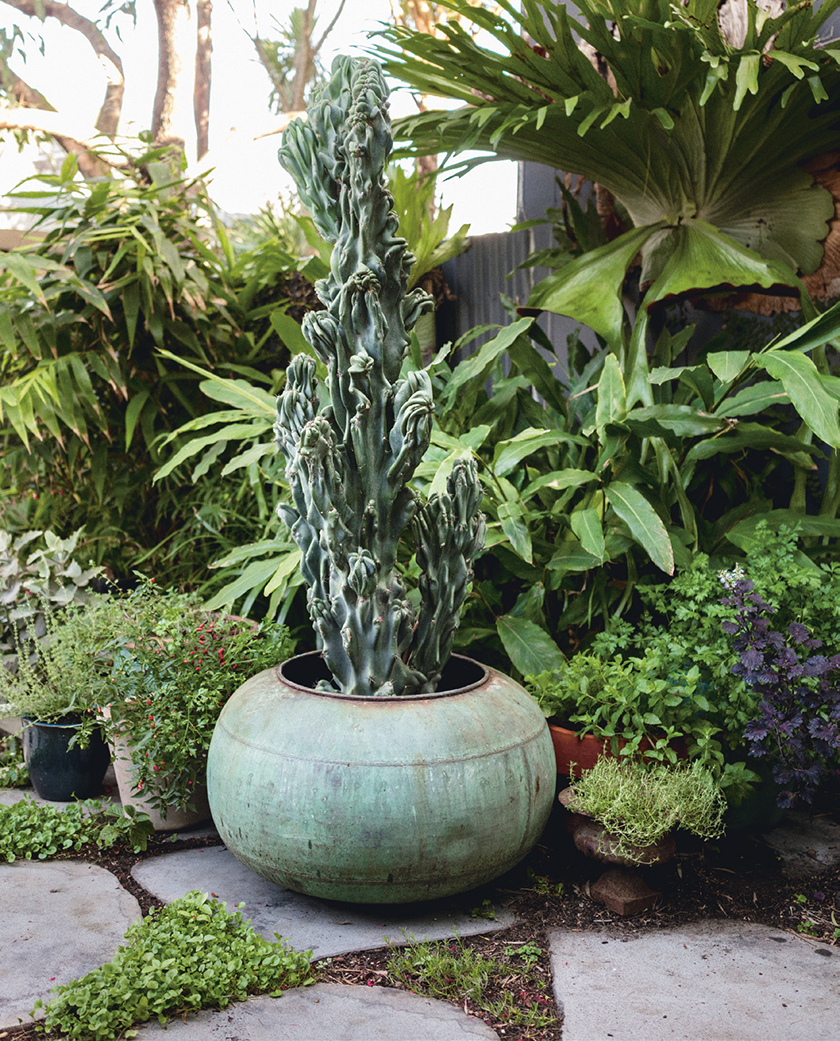
The garden of artistic designer Sean Cook and his partner Matthew Bright, who have created a monochrome garden oasis full of texture and life. (Photo: Daniel Shipp for Garden Life, Richard Unsworth, The Gardens of Eden)
Just like art, gardens are a way to marry concept and expression. What can a garden say about an individual’s frame of mind and perspective on the wider world?
Any act of creation is a reflection of the maker. I think the same can apply to gardens. Many of the same concerns of a work of art or design go into creating a garden: color, texture, symmetry, composition, sensory effect, and interaction. All the qualities that you might consider when creating a painting or sculpture come into play in the garden. Plus, you have the added bonus of what comes out of the garden to make things with—plants for natural dye or fiber for textiles, herbs for teas or herbal apothecary treatments, and of course flowers and edible plants.
"When you have grown something yourself and see how much time and effort it takes to do so, it alters how you might consider mass agriculture or even labor practices"
When speaking with many of the gardeners in the book, their approach to life or even a greater mission was absolutely reflected in the gardens they were creating. Lauri Kranz's abundant, wild aesthetic confers her interest in direct engagement with the natural world. Fritz Haeg's stewardship and investment in rehabilitating the former commune of Salmon Creek Farm reflects a worldview of care, long-term growth, and patience, as well as experimentation. In each interview through the gardeners and designers profiled in the book, we learn that the gardener is tantamount to learning about the garden; what we make is who we are.
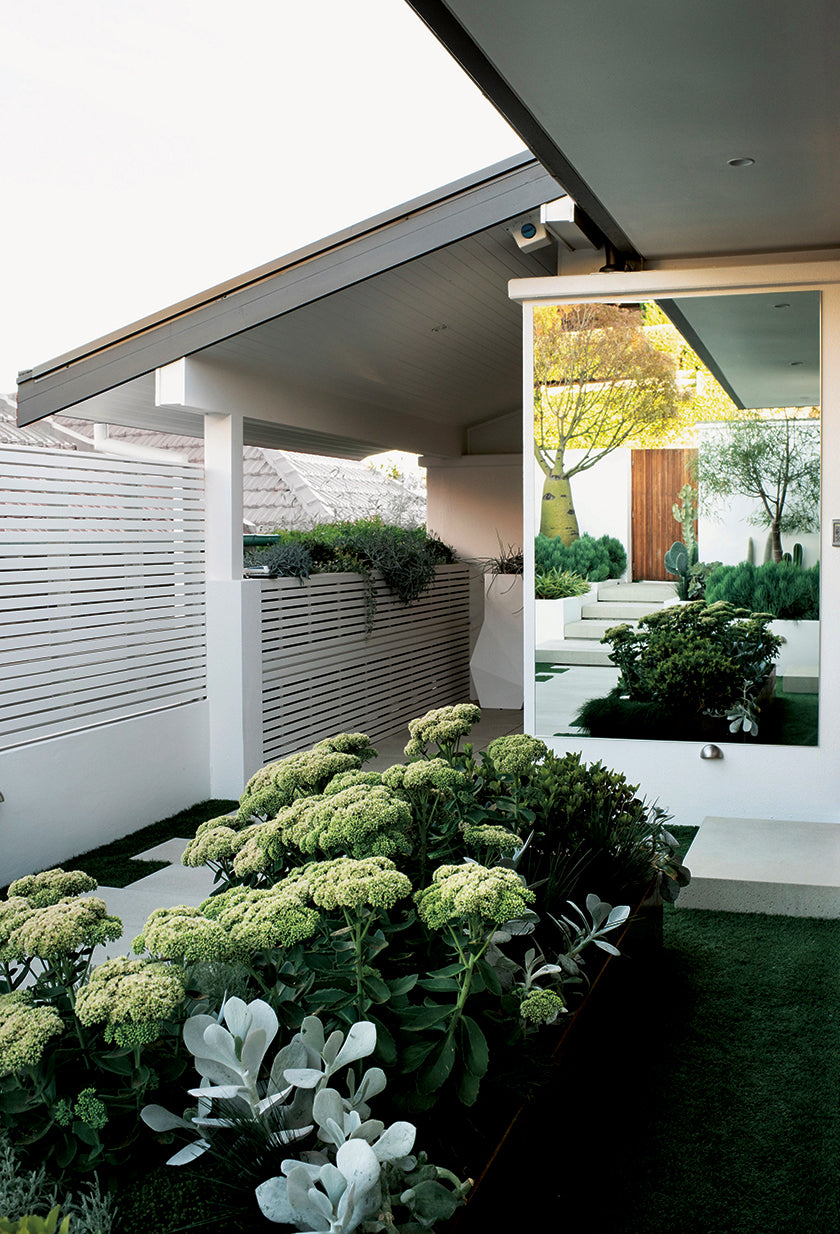
Monochrome sedum and succulents are combined to create subtle variations on color and texture, yielding sophistication in sun-drenched Sydney. Jane Stark created a living sculpture garden for her client, using vibrant and water-wise plants to transform the space. (Photo: Brigid Arnott for Stark Designs, The Gardens of Eden)
What collection of objects, plants, and scenery makes the ideal garden for you?
For me, gardening is very much about what happens to plant life after it is grown. I am interested in productive gardens that become natural dye, or fiber for textiles, ink for drawing, pristine ingredients for cooking, herbs for teas or flowers to infuse into apothecary treatments. I am interested in what comes out of the garden and having a deeper investment in those materials from having grown them myself. There is also something quite magical about coaxing a seed into a plant. It feels like we get to participate in a process of incredible wonder.

In the era of sustainability vs. consumption, what role can the garden play in the future of mankind?
I think gardens can teach us very directly about not just the natural world, but about how we have evolved as a society. When you have grown something yourself and see how much time and effort it takes to do so, it alters how you might consider mass agriculture or even labor practices. When you eat something you've grown yourself and perhaps make a choice to grow it organically or without chemical intervention, you are learning about the quality of the food you eat. There is something much more visceral about the idea of organic food when you think about being the one spraying chemicals on your beautiful tomatoes and then giving them to your family or loved ones. When you're the one doing physically doing it, it shifts how you think about things. I think overall, you start to see the value of the material world more when you engage in gardening. It slows you down. It forces you to respect nature and its power. Those shifts, subtle though they might be, can help to instill in a person a greater sense of responsibility in our shared planet, and in what ways our individual actions can positively impact it.
Start digging into The Gardens of Eden, available in German and English.

